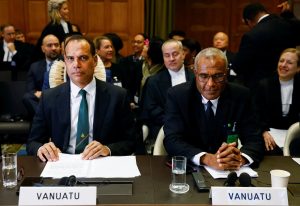By: Bridget Congo
Impunity Watch News Staff Writer
STRASBOURG, FRANCE— On February 11, 2025, in the case Novaya Gazeta and Others v. Russia, the European Court of Human Rights (ECHR) issued a ruling against the Russian Federation, finding that it violated the European Convention on Human Rights by passing laws that oppressed free speech regarding the war in Ukraine.
 |
On February 24, 2022, when Russia invaded Ukraine, their Federal Services for Supervision of Communications, Information Technology and Mass Media (Roskomnadzor, the “RKN”) mandated that media outlets utilize only official Russian sources for reporting on the operation, threatening immediate blocking of materials deemed “false” as well as issuing take-down requests (“TDRs”). Then, on March 4, 2022, Russia’s parliament enacted legislation that made sweeping amendments to their Code of Administrative Offences (the “CAO”) and their Criminal Code – criminalizing the dissemination of “fake news” about the military, with penalties of up to 15 years in prison. Subsequently, numerous independent media websites were blocked for their coverage of the conflict. Individuals were also implicated under these new laws. This case comprises two (2) independent media outlets, Novaya Gazeta and Dozhd TV, as well as 161 other individual applicants who faced convictions through criminal or administrative proceedings for expressing dissenting views on Russia’s military action in Ukraine. In May 2022, the RKN charged Novaya Gazeta with disseminating “fake news”, an offence under Article 13.15(9) of the CAO. Most individuals in this case were charged under either Article 207.3 of the Criminal Code or Articles 13.15 and 20.3 of the CAO.
The ECHR concluded that Russia’s actions constituted a coordinated effort to suppress dissenting opinions regarding the war in Ukraine. The Court emphasized that the imposed sanctions were exceptionally severe and served to intimidate society, effectively silencing independent voices on matters of critical public interest. Consequently, the Court held that Russia violated Articles 10 and 34 of the European Convention on Human Rights, along with other provisions concerning specific applicants.
The Court determined unanimously that Russia violated Article 10, citing systematic suppression of dissenting voices, with national courts penalizing any narratives using the term “war” instead of the official portrayals of the invasion as “special military operations.” The Court emphasized that even during emergencies, freedom of political speech must be protected under the public interest of democratic society and that applicant’s statements did not incite violence or unlawful activities. Finally, the Court noted an absence of efforts by Russia to balance national security interests with the public’s right to information on significant issues like armed conflict and alleged war crimes.
The Court found a violation of Article 34 concerning the Novaya Gazeta media outlet. Despite interim measures issued by the Court, Russian authorities revoked the newspaper’s publication license and blocked access to its websites, undermining the right to individual petition.
The court identified additional breaches involving five (5) applicants. First, Article 3 (Prohibition of Inhuman or Degrading Treatment), applicants were subjected to confinement in metal cages or narrow glass cabins during detention hearings. Second, Article 5 §§ 1, 3, and 4 (Right to Liberty and Security), issues included unwarranted arrests, pre-trial detentions, and delays in reviewing appeals against detention orders. Finally, Article 8 (Right to Respect and Family Life), unjustified searches of applicants’ homes were conducted by Russian officials without proper justification.
For further information, please see:
Blackstone Chambers — Novaya Gazeta and Others v. Russia — 12 Feb. 2025
ECHR — Judgment Novaya Gazeta and Others v. Russia — 2 Feb. 2025
Reuters News — Russia fights back in information war with jail warning — 4 Mar. 2022



